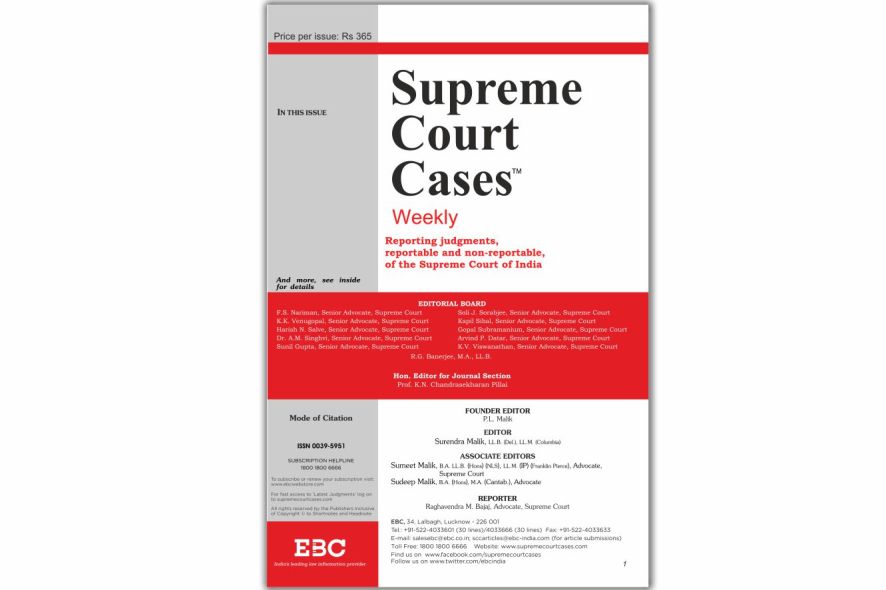
Contingent Claims and Liabilities: The Insolvency & Bankruptcy Code, 2016 does not seem to provide any clear indication as to the nature of contingent claims. This has resulted in resolution professionals adopting different methods to deal with the uncertainty surrounding contingent liabilities relating to pending litigations and arbitration proceedings; where the corporate debtor is a party to pending litigation and stands in a position in which it may be ordered to pay creditors pursuing the litigations. This article discusses some of the key questions that arise for consideration in this scenario. Contingent Liabilities Subject To Litigation Under The Indian Insolvency Regime: An Analysis Of The Grey Areas by [R. Venkatavaradan & Saai Sudharsan Sathiyamoorthy, (2021) 7 SCC (J-51)]
Court’s power to direct attachment Before Judgment: The jurisdiction of court to pass an order/direction in the form of attachment before judgment serves a sacrosanct purpose of ensuring the ultimate decree which may be passed in favour of the plaintiff does not transmute into mere words on paper. In this article, the author emphasizes that to curb the tendency of devious litigants from playing foul with the aggrieved party and courts/law, while exercising its jurisdiction under Order 38 Rule 5 CPC, a court must be vigilant of the scope and degree to which such jurisdiction may be exercised and the courts must also be cognizant of law and precedents while delving into any such prayer/request made before them. Attachment Before Judgment: Drastic And Extraordinary Faculty, Envisioned To Succour Justice Dispensation by [Abhishek Goyal, (2021) 7 SCC (J-43)]
Criminal Procedure Code, 1973 — S. 438 — Anticipatory bail: In this case, as High Court exercised its power of granting ad interim protection from arrest to accused, without recording any reasons, matter remitted back to High Court for decision afresh after recording reasons in support of its order. [Sorathia Bindi v. State of Gujarat, (2021) 7 SCC 817]
Human and Civil Rights — Humanitarian and Natural Disasters, Epidemics and Pandemics — Epidemics and Pandemics — COVID-19 Pandemic — Phase 3 vaccination drive: Clarifications issued, suggestions given and queries sought regarding the liberalised vaccination policy of the Central Government for COVID-19 Pandemic. [Distribution of Essential Supplies & Services during Pandemic, In re., (2021) 7 SCC 772]
Insolvency and Bankruptcy Code, 2016 — S. 9 r/w S. 238-A: Application under S. 9 by an employee against employer company is admissible when there is non-payment of salary by the employer/corporate debtor. The effect of acknowledgment of such liability on limitation period, explained. [N. Subramanian v. Aruna Hotels Ltd., (2021) 7 SCC 802]
Insurance — Motor Insurance — Comprehensive insurance policy — Own-damage claim — Exclusion clause re driving “under influence of intoxicating liquor” — When excludes liability of insurer: For such exclusion clause to apply so as to exempt insurer from liability, held, it must be shown in the facts and circumstances of each case that the consumption of liquor had, if not caused the accident, which undoubtedly would bring the accident within the mischief of the clause, but at least contributed in a perceptible way to the causing of the accident. [IFFCO-Tokio General Insurance Co. Ltd. v. Pearl Beverages Ltd., (2021) 7 SCC 704]
Live-In Relationships: This article illuminates at the global panorama, the legal status and various other intertwined notions regarding live-in relationships by using notions like governmentality and biopower propounded by Michel Foucault. Live-In Relationships: Social Myths, Legal Realities And The Way Forward by [Dr G.K. Goswami & Siddhartha Goswami, (2021) 7 SCC (J-25)]
Service Law — Reinstatement/Back Wages/Arrears — Back Wages — Non-entitlement to: In case of failure to report to transferred place of posting and delay in initiating proceedings, a person is not entitled to back wages. It is not open to petitioner to defy transfer order on ground of non-communication when more than 100 medical officers were transferred by same common order. [State of U.P. v. Manoj Kumar Sharma, (2021) 7 SCC 806]
[“source=scconline”]

